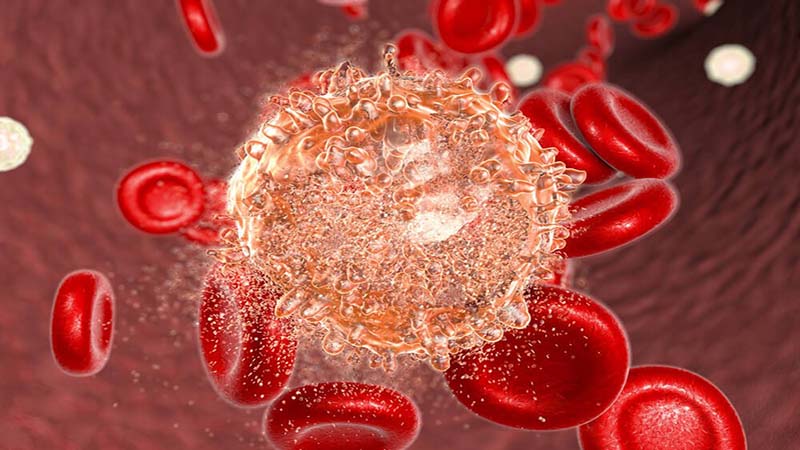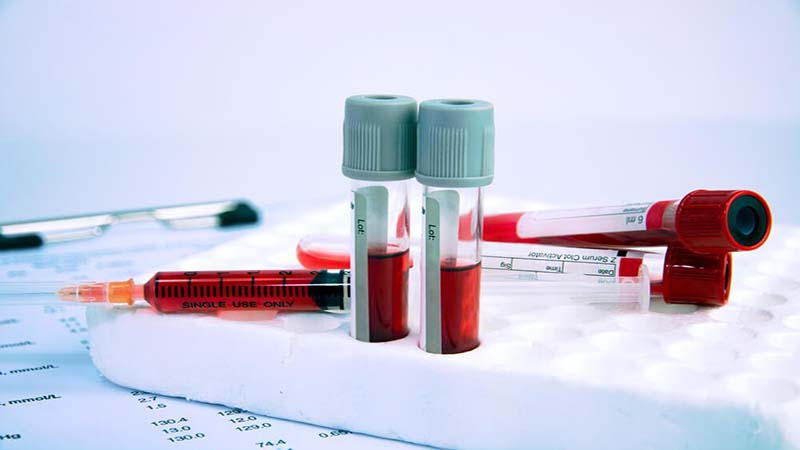Leukemia is a subtype of cancer that affects the blood cells of patients.Thus, they begin to divide and grow in an uncontrolled way and can even move and invade new tissues (metastasis).On the other hand, this alteration has its origin in a modification or mutation in the genetic material of the cells.
The exact causes of this pathology have not yet been found but some risk factors have already been identified. For example, radiation, consumption of toxic substances, genetic inheritance and other diseases.
Investigations in acute lymphocytic leukemia
- Genetic heritage. Changes in the DNA of cells that can turn them into leukemia are currently being studied. To do this, they must study the genes involved in such development, especially the Philadelphia chromosome .
- Early detection On the other hand, through the polymerase chain reaction test, leukemic cells can be detected even though they compose a low amount. Routine medical tests do not detect the disease until there is a considerable amount of these cells.
- Improvements in chemotherapy. The specialists study the best combination of medications trying to minimize the side effects. New chemical compounds are also being developed for this activity.
- Advance in the transplant of stem cells . They are checking the properties of this treatment and studying the causes of rejection in them.
- Use of monoclonal antibodies. Through a series of medications, the patient is given antibodies (proteins) that act only on the cancer cells.This treatment is still experimental but has presented good results so far.
Investigations in chronic lymphocytic leukemia
- Study of the genetic components of the disease. They are also checking the inherited factors that can trigger this cancer subtype.The information obtained is used to determine the cause of this accelerated division, to determine the patient’s prognosis, etc.
- Manufacture of new medicines. These compounds can be elaborated for both chemotherapy and targeted therapy.
- Use of monoclonal antibodies .
- New clinical studies Nowadays, certain studies focus on the manufacture of drugs that contain a specific class of toxins. These harmful substances attack only the cancer cells, neutralizing them.They are called immunotoxins.
Investigations in acute myeloid leukemia
On the other hand, studies are being carried out on the genetic component of the pathology .
- Detection of minimal residual disease. Although there are a low number of cancer cells there are certain tests that detect the presence of this disease.
- Manufacture of new drugs dedicated to chemotherapy treatment.These compounds reduce the adverse effects and enhance the attack against the disorder.
- Within stem cell transplants, the effectiveness of the different subtypes is being tested and how to avoid rejections along with other side effects.
- Also, new drugs that attack cells with certain genetic alterations (such as cancer) are being perfected. We talk about targeted therapy.
- Within immunotherapy we find new innovative techniques. For example, monoclonal antibodies, inhibitors of immune control points and the development of leukemia vaccines. T cells can also be extracted from the patient and modified in the laboratory to destroy the cancer cells.
Investigations in chronic myeloid leukemia
- Currently, all changes or genetic modifications that can intervene in the presence of the pathology are being studied . Therefore, progress has been made in the studies on the abnormal behavior of these cells.
- Likewise, the best combinations of drugs in each clinical case (directed therapy) are checked . New chemical compounds are being developed and tested for this treatment as well as for chemotherapy.
- On the other hand, clinical studies are being carried out to see if it is possible to develop a vaccine or other prevention against leukemia.
Thanks to the latest scientific advances, the survival of leukemia has increased and treatments are increasingly effective against cancer.













